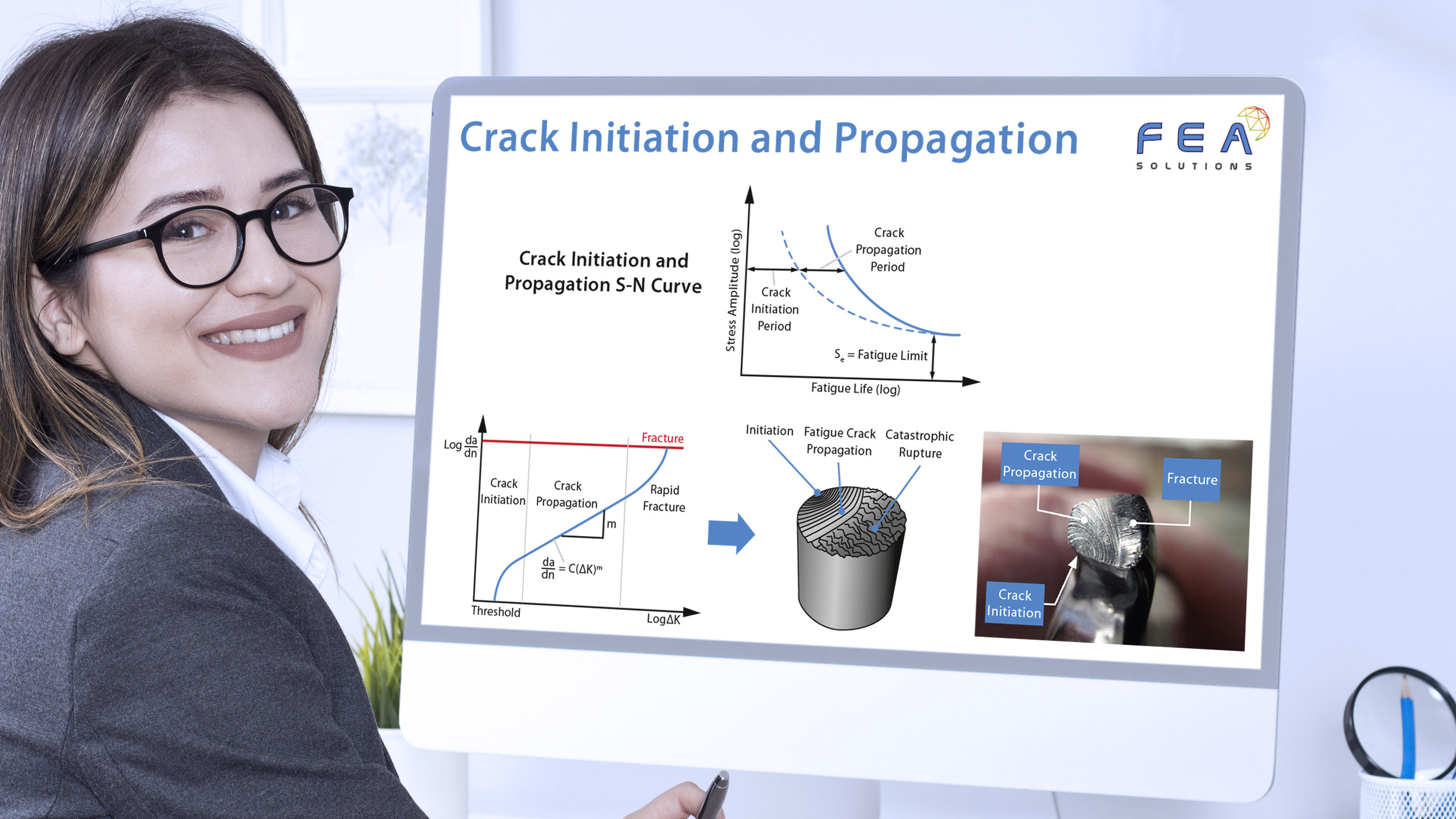
16 Nov Crack Initiation and Propagation
The three stages of fatigue failure in a component are:
- Crack Initiation
- Crack Propagation
- Rapid Fracture
Crack initiation, sometimes called crack formation, occurs in areas of concentrated stress on the surface of a component, and in areas where surface defects can be found. As surface defects can cause crack initiation, inspection and maintenance of the component is key to ensuring the longest possible fatigue life. Once a crack has formed on the surface of the component, it will begin to propagate through the material as it undergoes an increasing number of load cycles.
Crack Propagation is measured as a function of the stress intensity factor (K) at the crack location and is broken down into 3 stages. In the first stage, K is small and the crack propagation is difficult to predict as it depends on the microstructure of the material. That is why the crack may not grow in size at all. In the second stage, K is increasing in value, and the rate of crack propagation is not as dependent on the microstructure, but rather depends on the material. This second stage is the largest and most dominating part of the fatigue process. In the final crack propagation stage, K is increased even more, and the crack propagation rate will accelerate rapidly until fracture occurs. Like the first crack propagation stage, the progression of the fracture depends on the microstructure of the material.
The function for crack propagation is the following:
![]()
- da is the change in crack length
- dn is the change in number of load cycles
- C is a constant
- ΔK is the change in stress intensity factor
- m is the gradient on a double logarithmic scale
Although it will not contribute to the crack propagation and eventual failure, the surface of the crack will often be corroded slightly and so its appearance will change. This enables the different stages of crack initiation and propagation to be identified on the fracture region of the failed component.
Please call us today on +44 (0)1202 798991 for any engineering analysis requirements you might have.
